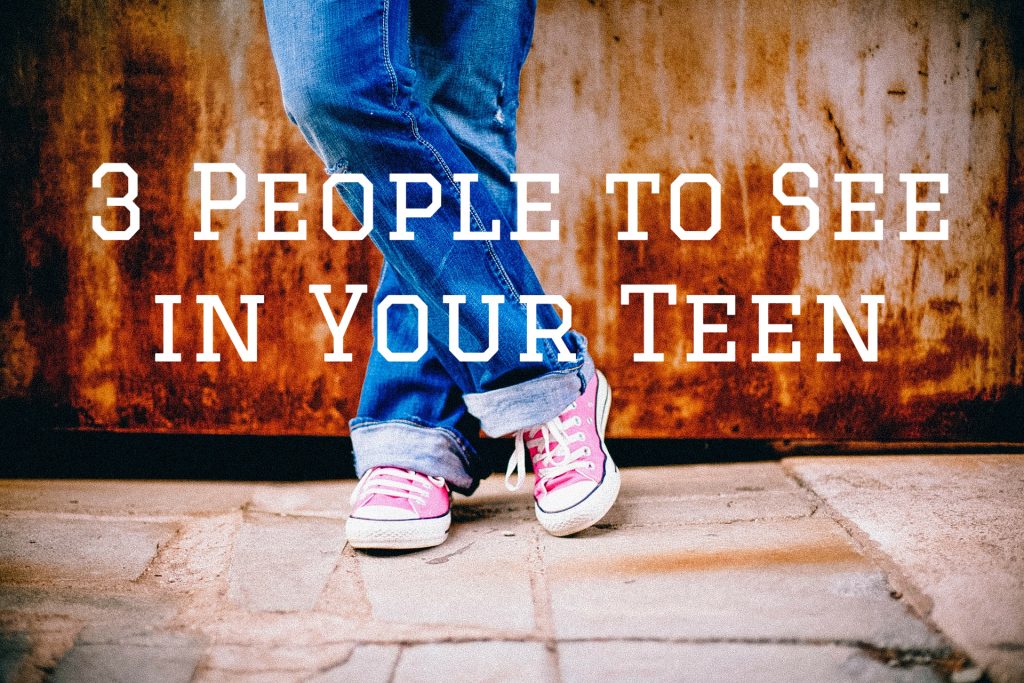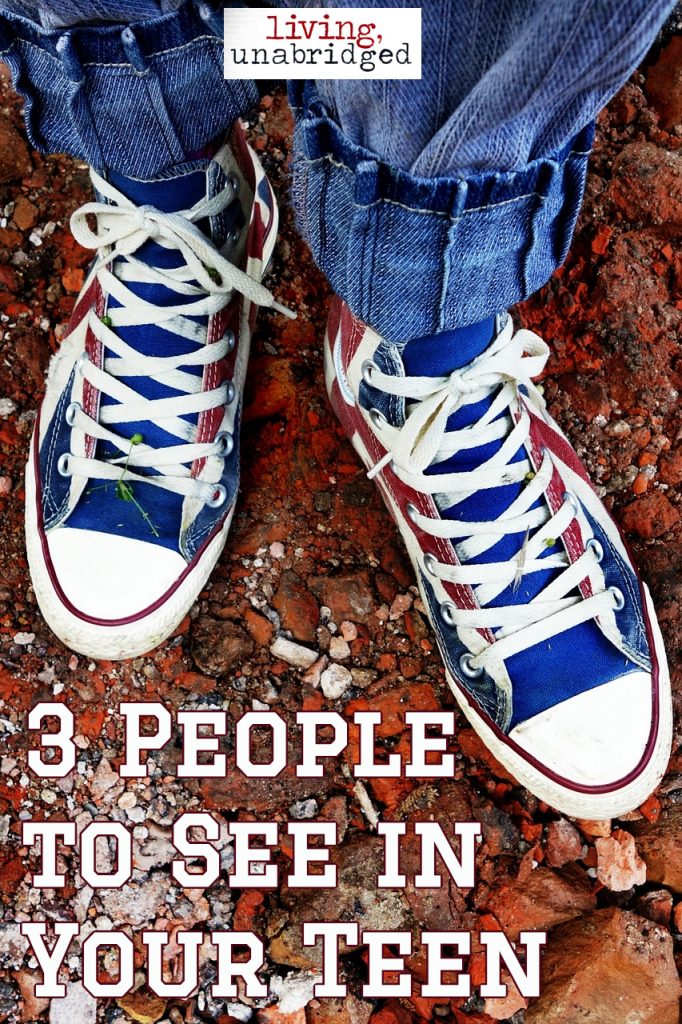Every stage of parenting has its own rewards and challenges. I have six children ranging in age from 2 (almost 3) to 16 (she'll be 17 this year).
This means that I am aware of these different stages pretty much every day. (And yes, I do miss some things about the baby stage but I don't regret getting more sleep now.)
Now that I've been parent to a teen for a few years, I'm becoming aware that I have to see past the surface in our day to day dealings.
With that understanding, I try to see three different people when I'm dealing with Teen Things.

Here are the 3 people I think we need to see when we look at our teens:
1. You Should See The Baby
When the sass is high or the hormones are roiling, it's good to remember that sweet baby face and how your heart melted the first time you saw her.
Do you remember how deep in love you fell with a person who couldn't give you anything but damp smiles?

Good parents don't hold the realities of babyhood against their baby. Of course they wake up multiple times a night. OF COURSE they need diaper changes. And spit up? Well, it happens. We seem to be able to sacrifice our own comfort more easily for a helpless baby.
It's good to remember that level of love when you're dealing with your teen. Because, of course there are challenges that go along with the stage.
2. See The Future Adult
Once again, when things are difficult, it's good to remember that life is made up of stages. Adolescence is just another set of stages.
Someday, Lord willing, your baby will be grown and out in the world amazing you with what he knows and what he does.

Don't give in to catastrophic thinking. You know the type. (He never makes his bed so he'll always be a slob and he'll never get a job interview and he'll be living in a van down by the river by the time he's 22...)
Flaws do not have to be fatal. Your child has time to work on those. (After all, you're still working on some, aren't you? *cough*)
Someday, not long from now, your child will be grown. And the teen years will be a fond memory. Probably the really good things and the truly difficult will be the things you remember. The day to day struggles? I expect those to fade with distance. Will you really remember the 17th time he forgot to take out the trash?
The things that annoy right now may become memories you laugh about. After all, that's what happened with the other stages.
3. Get to Know Who Your Teen is Right Now
As parents, it's easy to put things on auto-pilot, particularly when you're raising a large{ish} family. You can lose site of the person your child is right now.

The best way to remind yourself? Spend the time.
One on one time is the gold standard, of course.
But if you can't manage that, conversations between a smaller group help too.
Ask questions. And actually LISTEN to the answers.
Don't jump in with advice. Swallow the correction that springs to the tip of your tongue.
Your questions need to be open ended. So deep-six the yes or no drill. (Did you have a good day? Are you feeling OK?)
Remember the who, what, where, why, when, and how questions you learned when you learned to write? Time to bring those out again.
(Although, caveat: Be sparing with why. It can come off as pushy and sometimes kids honestly don't know why they like something or why they thought something.)
Look for conversation starters if you need help. Things like:
- Which superhero do you wish lived next door?
- If you could live at any time in history other than our own, which one?
- When did you feel the most happy? The most afraid?
- Where in the world would you like to visit if someone else paid for the travel expenses?
- What's your earliest memory?
I'm sure you can make a list of your own.
But don't act like an investigator.
Your teen is an hypocrisy bloodhound. If you are insincere, she will KNOW.
Ask the questions and spend the time because you genuinely love him.
And because you really do want to know and appreciate your child as the human being she truly is.
Don't assume that, because you've known your child their entire lives, you know everything about them.
The second they emerged from the womb, they began experiencing life separate from you.
They have their own take on family memories.
They've read different books and seen different movies and heard different songs.
The child that told you all, at the age of six, about how she was going to paint her entire house pink whens he grew up, may now wish to live in a white and chrome loft that looks over a foreign city. Did you know that changed?
Favorites change. Tastes change.
Your child is still your baby. And he will one day, if the Lord wills, be your grown-up son who loves you but forgets to call sometimes. Meanwhile, who is he today?
When I look at my six children's faces, especially my two teens, I'm trying to hold all these things in my mind.
Need help with "the talk" and your teen or tween daughters? Sheila Gregoire and her daughters have a fantastic resource for you:



